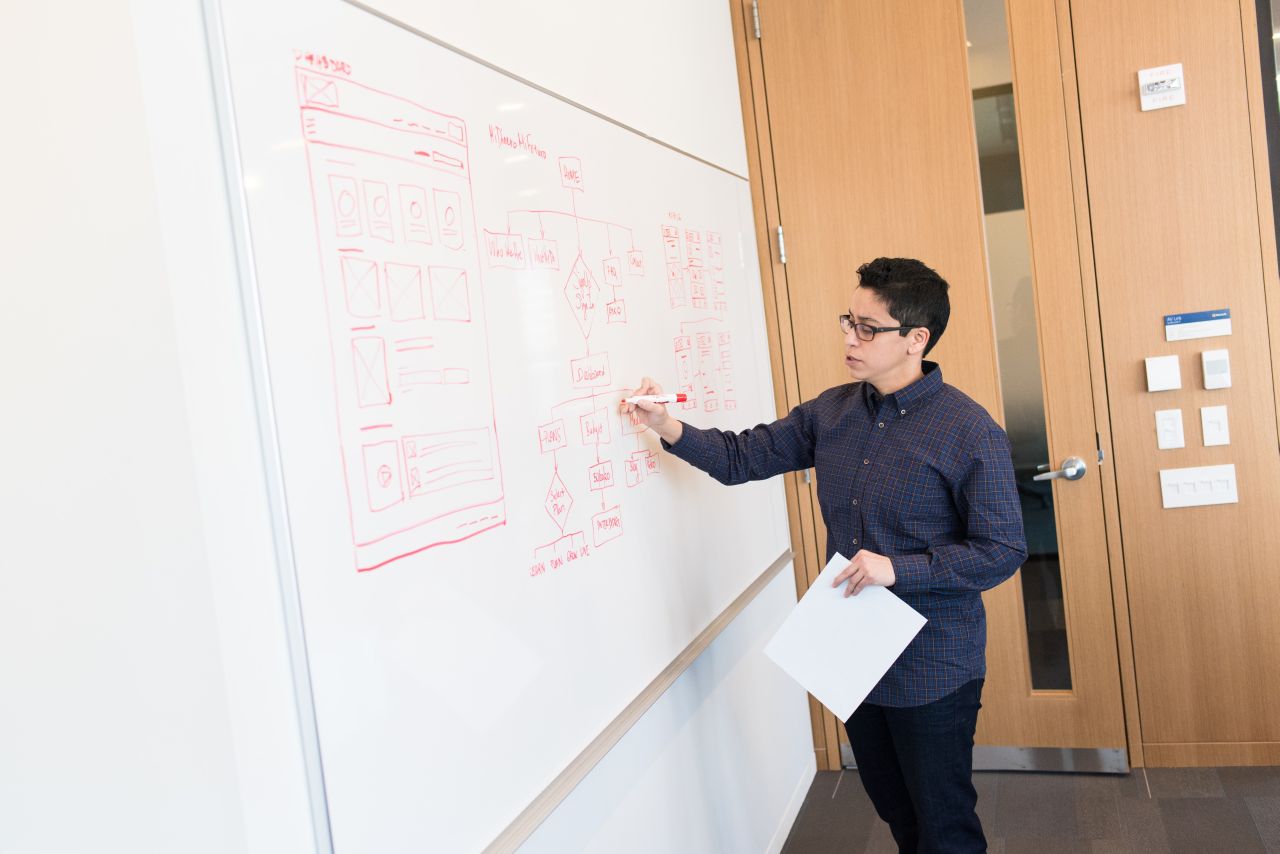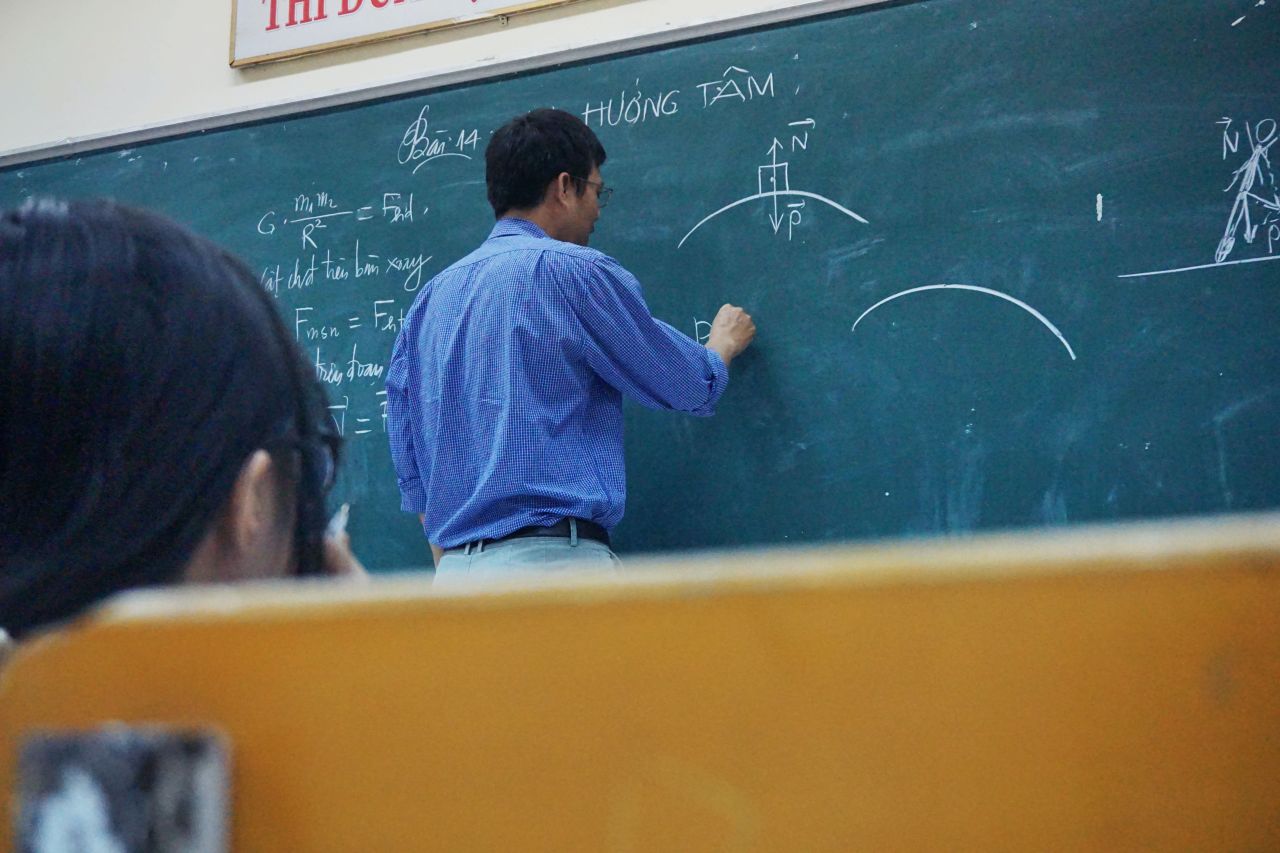So, you've decided to homeschool your child? Congratulations! It's a big decision, but it can be a great way to give your child the education they need. But where do you start? This guide will walk you through the basics of teaching your child at home:
- Decide what type of homeschooling is right for your family. There are several different options, so find one that fits your lifestyle and goals.
- Create a curriculum that meets your child's needs. There are plenty of resources out there, so don't hesitate to get creative.
- Make sure to set regular homework schedules and stick to them.
Homeschooling can be a lot of work, but it's worth it when you see your child.
Roles And Responsibilities Of Teachers And Tutors
While teachers and private tutors aim to facilitate, encourage and aid learning, there are clear differences in their roles and responsibilities.
What's The Role Of A Teacher?
It's a teacher's job to
- Led a large class of students (sometimes 30+!)
- Deliver the national curriculum
- Use teaching methods and strategies that work for most students
- Work within school hours
- Manage behaviour in the classroom
- Deliver learning at a pace suitable for the majority of students
What's The Role Of A Tutor?
So, what is a tutor? In comparison, it's a tutor's job to…
- Tutor one-to-one or in smaller groups
- Build on what's taught in the classroom in line with the national curriculum
- Tailor sessions, teaching techniques and materials to individual learners
- Fill in gaps in knowledge or learning techniques
- Help with specific subjects, projects or skills
- Offer more flexible learning schedules
- Encourage independent thinking and learning
Teacher Or Tutor – What's The Difference?
The main differences between the duties and responsibilities of a private tutor and a teacher are:
- The number of students taught in a session – tutors work one-to-one or small groups for tutoring sessions.
- Qualifications – tutors are not required to have formal teaching qualifications. However, lots of tutors have qualifications in the subjects they assist students with
- Individual learning – tutors are focused on individual goals rather than the needs of an entire class.
- Flexibility – tutors can offer more flexible learning hours and materials
- Feedback and attention – tutors can provide detailed, immediate feedback and give more attention to individual students.
"Tutoring children is a highly rewarding experience. I can meet the individual needs of each student as they progress through our highly comprehensive programme whilst using my curriculum knowledge and experience to enhance the lessons. I love to support fearless learning, help children to learn from their mistakes and celebrate successes with them."
Frequently Asked Questions
Teaching and tutoring involve a lot more differences than you might think. While teachers have to manage large class sizes of up to 30 students, a tutor's job is to support students' learning more personally and flexibly.
The primary responsibility is to support students (tutees) to become more independent learners, persist in college, and reach their goals. Tutors meet with students to clarify and review concepts taught in class, explain processes and help students solve specific problems.
Most schools do not allow teachers to teach their students. Some schools do not even allow teachers to have a tutoring business on the side. However, other schools allow teachers to tutor students at their own time, as long as the teacher uses their material and does not use their classroom.
A good tutor can help students hone in on areas where they need to focus and put in extra work before they even begin to struggle, so they master new skills right off the bat and excel in school. Tutors are an invaluable part of a child's educational team, and they often have more flexibility than a regular teacher.
Nearly 1 in 5 public school teachers have second jobs during the school year, a new analysis of federal data shows. Half of the teachers with second jobs are working in a field outside of education, while 5 per cent of teachers are taking on a second teaching or tutoring job outside of their school districts.
Are Tutors Better Than Teachers?
Now let's get this clear. We're not saying that one is better than the other! On the contrary, teachers and tutors play important roles in our children's learning, and the best results often come when they work together.
Classroom teachers have more constraints regarding class sizes and time pressures, so understandably, they can't always give as much attention to some students as they might like. That's why tutoring can help students who are either struggling to keep up or whizzing ahead to fulfil their potential.
Tutors have more time and resources on their hands to prepare lessons and cater to different learning styles and goals.
When You Might Need A Tutor
Every child is different. That's why it's important to remember that different teaching styles and situations can be key to successful learning.
Whether it's problem-solving or improving their communication skills – private tutors work with students on a wide array of topics and techniques.
Here are some instances where it could pay to find the right tutoring for your child.
Supporting Children With Special Educational Needs
Children with SEND may have very different needs from the rest of their classmates. Whether it's adapted lesson plans or finding the right learning style for reading and writing skills – an expert tutor can help them improve their concentration, progress, confidence and passion for learning.
Find out from Sam and his mum how we support learning with autism.
Nurturing Gifted Learners
If your child is gifted, some extra English and maths tutoring may be just what they need to expand their horizons and inspire them to excel in their learning journey.
It could include giving them the confidence to succeed in their 11 Plus exam or encouraging them to participate in national competitions!
Boosting Their Confidence
Sometimes, children need extra attention and encouragement to learn at their best. Confidence is key to mastering English and maths skills in the classroom.
Working in smaller groups or one-to-one can make some children feel safer stretching themselves and curious about new things. At Explore Learning, our expert tutors are passionate about tutoring students to inspire fearless learners!
Is your child nervous about the transition to secondary school? Our Succeed in Secondary tuition course could give them the tools to thrive.
Main Aspects Of A Tutor
A tutor is a private teacher who tutors individual students in one-on-one lessons or small group classes. Therefore the tutor can focus on the student's needs and tailor the lesson according to the student's learning skills. The tutor's workplace can be at home, online via webcam, library, or another public place. Homeschoolers often hire different tutors for different subjects.
The tutor can use different methods and techniques to help the student understand the concepts. Students who struggle with a particular subject at high school or college hires a tutor for additional help. In addition, universities often call lecturers who work with students in a small group or one-on-one a tutor. Although a tutor typically gives an informal source of education, they play a crucial role for many students to complete their formal education.
Another difference is the qualification. A tutor does not need to have the same pedagogical qualifications as a teacher. Even a student who teaches another student is considered a tutor. Tutoring jobs for college students is a popular way to earn extra income while studying.
Main Aspects Of A Teacher
A teacher teaches at a school, high school, or college, often more than 20 students at a time. Therefore the teacher can find it challenging to pay attention to each student.
A teacher has to follow a strict curriculum. The lesson plans follow a standard procedure with very little flexibility.
A teacher has a different teaching concept from a tutor. The focus of the lessons is to pass on information to students with a method that suits most students, but not all. Although a teacher may have more restrictions and flexibility than a tutor, a teacher finds many tasks and responsibilities in addition to the usual teaching.
Responsibilities Of Teachers Vs. Tutors
Teachers and tutors can both play an important role in preparing students for academic success. Teachers typically work in a classroom with several students of the same age. Tutors may work with students in their homes, online, or at an office. They focus on customising an educational plan to meet student's specific academic goals. For example, a student learning English as a secondary language may need extra help with their reading and writing skills, while another may need help learning how to write essays. Teachers follow pre-determined guidelines for the expectations for their class and evaluate students on that basis. At the same time, tutors focus on students' individual academic needs and help them improve their skills in a specific subject.
Teacher
Teachers need to have a bachelor's degree, and those that work in public schools must also have a teaching licence. Some teachers may opt to work in private or religious schools. They use an approved curriculum guideline to develop lesson plans for their classes. Their goal is to ensure that all students acquire the appropriate skills to pass the class. While elementary school teachers may teach several different subjects, middle and high school teachers typically focus on teaching in an area of specialisation. Some teachers may pursue a graduate degree and become instructional coordinators or school administrators.
Job responsibilities of a teacher include:
- answering students' questions
- grading assignments
- updating students' records with their grades
- meeting with parents or other educational professionals
- supervising students
Tutor
Although tutors may be required to have a degree, many tutors enter the field after completing some postsecondary studies. Tutors may focus on a specific subject they excel in or several subjects. They're hired to work with students who may have challenges with a certain subject or need extra help outside of school to achieve their academic goals. As part of their duties, they may review their students' work to determine skills or concepts they are struggling with and then develop a strategy to help the student enhance those skills or improve their understanding of the concept. Tutors may also work with students to help them improve their studying skills.
Job responsibilities of a tutor include:
- meeting with students and parents to discuss students' goals and needs
- talking to students about their study habits
- assigning and evaluating student work
- tracking and sharing students' progress with teachers and parents
Tutoring Vs. Teaching
We live in an age of unprecedented flexibility in educational options. Virtual learning, in-person school, hybrid models: it's easy to feel spoiled for choice! Does my child need a teacher or a tutor? Online or in-person?
We get it—there's a lot to consider. Let's simplify the learning equation.
Here's a breakdown of seven important differences between tutoring and teaching (plus some important things they should have in common!)
Class Size
It might be a no-brainer, but it's an important no-brainer to bear in mind!
Think about it—teachers work with larger class sizes, usually upwards of at least 12 students. The social learning opportunities offered in this environment encourage collaboration, teamwork, and leadership alongside the core content. Working with a teacher is a great option if your child's goals align.
Tutoring is usually a much smaller setting, most often 1-on-1. Thus, tutors offer kids the chance to delve deeply into their interests, offer more space for their questions, and allow for minimal distractions as they work towards their goals.
It's worth asking yourself (and your child!) which kind of learning environment best meshes with what they hope to achieve and the kind of support they need.
Expectations For Students
You'll notice that teachers institute more rules than a tutor will for lack of a better term. I know from experience that corralling 25 kids at a time requires plenty of well-honed expectations and routines. That said, these pay off in spades when it comes to those benefits of collaborative learning mentioned earlier!
Plus, many kids thrive with a little structure (or a lot of structure), and great teachers provide that.
Tutors, by comparison, will set some expectations for kids, don't get me wrong—this is just one of many characteristics of a great tutor.
However, the odds are that there are fewer in a tutoring session vs. a classroom, which can provide some breathing room for kids and a welcome break from the typical routine.
Tutoring expectations might be more centred on personal goal-setting, which is great for cultivating a customised learning experience.
Specialisation & Knowledge
Tutors can offer laser-focused levels of expertise. For instance, a great coding tutor won't just show kids how to code, but how to code a game, a website, or something else that sparks students' interests.
Teachers offer broader knowledge, and mastering all kinds of pedagogical skills is necessary to become a teacher. However, teachers generally offer higher expertise in delivering the material from classroom management to child psychology and specialised teaching techniques.
That's not to say that there aren't experienced tutors out there or that teachers can't also be highly specialised; it's just a matter of extra searching (or vetting) to make sure you're getting the best of both worlds for your child!
Think of this one as a difference in breadth and depth.
Often, teachers have a set curriculum, pre-determined learning objectives, and Common Core Standards guiding what's covered in class. These benchmarks are important to measuring progress and ensuring students get the essentials they need. Great teachers can engage students with a breadth of information meaningfully.
Tutors can take students through a much deeper dive into the material. An excellent math tutor, for example, will work within subjects like geometry or calculus to hone a select group of skills or concepts. This level of customisation is one of the most notable benefits of tutoring, and it's hard to beat.
Scheduling & Structure
The start of a class and a tutoring session is usually very different experiences. A typical classroom, be it virtual or in-person, will probably kick things off during school hours of Monday-Friday, whereas tutoring scheduling has more possibilities.
For teachers, it's practical to start with a warm-up like a fun question of the day for students by reviewing objectives or with another routine that students become accustomed to. From there, the rest of the 50 or 90-minute session will centre on exploring those objectives.
Tutors have a bit more flexibility (you might be picking up on a theme here). That means skill practice, working on a project, or whatever best helps kids achieve their goals. Often, students have more say in the session structure in a tutoring environment than in the traditional classroom.
How success is measured
How do you know it's "working"? High scores? More advanced skills? Ideally, it's a combination of both!
Teachers usually implement multiple ways to measure student growth and success: progress reports, feedback on submitted work, and scores on assignments are all part of the day-to-day routine.
With tutors, recognising student success might look more like celebrating milestones: mastering a tricky concept, completing a project. In either setting, positive reinforcement should be a staple.
With that in hand, kids have the encouragement and inspiration they need to get excited about their next learning adventure. If they're ready to get started right away, our virtual tutors are online now and ready to make that happen.
Conclusion
Tutors and Teachers both want the best possible education for their students. The profession of a teacher offers a more secure career and income, while the tutor job provides more flexibility and the option to work online. In addition, a teacher can use group work methods to develop social interaction, and the tutor sees a rapid learning development of his students in one-on-one classes.
There is no better or worse. The best possible livelihood is achieved when tutors and teachers work together to make an exchange of the student's development transparent.


